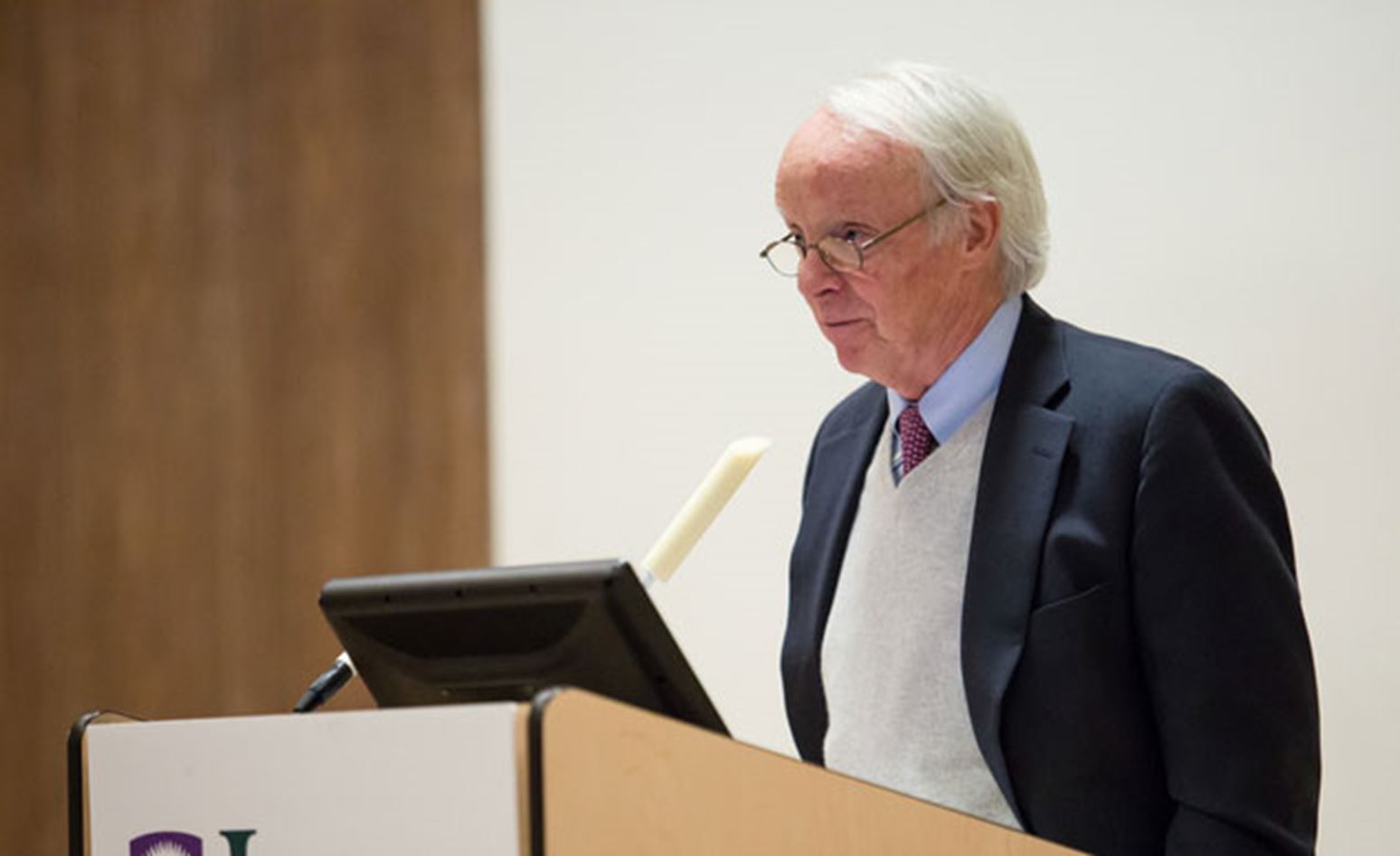When it comes to success in investing, logic, rather than emotion, has to prevail.
That was the message from William Browne, Managing Director of Tweedy, Browne Company LLC, a U.S.-based investment advisory and fund management firm, when he spoke to students in Ivey Professor George Athanassakos’ value investing class on February 25.
Browne said emotion can cloud one’s judgment and lead to illogical decisions. He pointed out three common investing mistakes that involve emotion:
- Confirmation bias – When people seek out information that confirms what they are thinking or feeling rather than seeking a contrary point of view;
- Extrapolation – When thinking is hinged around reactions to the latest piece of news;
- Institutional imperative – When people act because they feel pressure to always be doing something. In investing, this may mean trading stock constantly rather than waiting.
“There are all sorts of pressures that eat away at people’s ability to be logical,” he said. “It’s this inability to be logical and to stand back and to think through why you’re investing and what you are investing for, which gets in the way so often of success in the business.”
Instead Browne stressed it’s important to develop a process for investing that’s objective.
“It’s all about aligning as many probabilities as you can on your side and having a number of things that you think you have a reasonable chance of understanding and that you believe are sustainable,” he said. “Then your outcomes, on average, will be favourable when investing.”
Browne said his company’s process for investing is centred on a share of stock being akin to a fractional interest in a business. He said he looks for businesses that appear to be sustainable over the long term because they sell multiple products with some element of consumer attraction to them in numerous countries around the world.
“You want to make sure that it’s not a business that is so over-leveraged that if you get into a difficult period, it won’t come out on the other side. That’s risk,” he said. “There are things that you can develop a sense of comfort or discomfort about without very much effort. If you’re not sure, you should move on.”
Then he looks at what people have paid for the business over time to get a range of what the business is worth and only buys when the price is at the low end of the scale.
“What you get when you buy a good business at a discount, is you not only get the spread (the difference between the buy and sell price), but you also get compounding from a good business. You really end up getting a double-dip,” he said.

William Browne and Professor George Athanassakos



